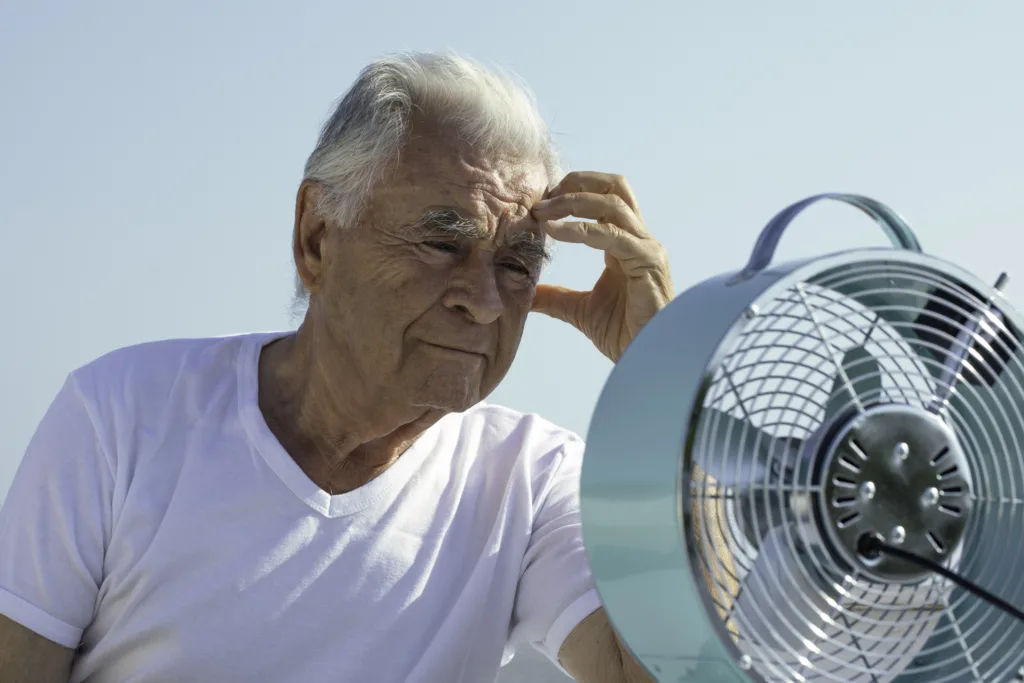Summer is here, and temperatures are already soaring. With warmer weather comes the danger of extreme heat, which is especially worrisome to some groups, like older adults and those with heart conditions. Unfortunately, the rate of heat-related deaths in people with heart conditions has been on the rise. CNN reported that between 2008 and 2019, the heat index – which combines temperature and humidity – reached at least 90 degrees on an average of 54 days each summer in the US. Those days of extreme heat were associated with nearly 1,700 cardiovascular deaths each year. Due to climate change, the frequency and intensity of extreme heat and heat waves will continue to rise in the 21st century.
The human body prefers a narrow temperature range. When the body senses a temperature rise, the heart beats faster to transport blood away from the core and vital organs. For those with pre-existing cardiovascular disease, the heart may not be able to keep up with the increased demand that comes with extreme heat. Also, long-term exposure to extreme heat can lead to other bodily changes like inflammation and blood clotting, which increase a person’s risks for heart attacks and strokes. According to the American Heart Association, temperatures exceeding 100 degrees Fahrenheit or even in the 80s with high humidity can cause stress to the human heart.
Heat safety for those with heart conditions
If you have a heart condition, it’s crucial to protect yourself when it’s hot outside by staying cool, hydrated and knowledgeable about the dangers of heat exposure. Heat can increase heart attacks, heart arrhythmias and heart failure. Here are some tips to stay healthy this summer:
Drink plenty of fluids
Whether you are active or not, you should drink more fluids in the summer. Don’t wait until you’re thirsty to drink, and avoid sugary or alcoholic drinks as they lead to dehydration. If your doctor has prescribed water pills, ask how much you should drink during hot weather.
Replace salts and minerals
Heavy sweating removes salt and minerals from the body that must be replaced. Consider drinking sports drinks to replace what’s lost in sweat. If you are on a low-salt diet, have diabetes, high blood pressure or other chronic conditions, talk to your doctor before drinking a sports drink or taking salt tablets.
Don’t rely on electric fans
These fans may provide comfort, but when temperatures soar into the 90s, they will not prevent heat-related illness.
Schedule outdoor activities carefully
If you must go outside, limit your activity to when it’s most cool, such as morning and evening. Take frequent rest breaks in shady areas. Don’t do outdoor exercises in extreme heat. If your heart starts pounding and you begin gasping for breath, stop all activity and rest. Some other warning signs include lightheadedness, confusion, weakness or fainting.
Wear sunscreen and dress appropriately
A sunburn can affect your body’s ability to cool down and dehydrate you. If you must go outdoors, wear a wide-brimmed hat, loose and lightweight clothing, sunglasses and sunscreen of SPF 15 or higher.
Avoid hot and heavy meals
Digesting heavy meals raises your internal temperature, making you feel hotter. Opt for smaller, light meals with water-rich foods such as bell pepper, lettuce, pineapple, watermelon, cabbage, cucumber and orange.
Lookout for heat-related illness
Some common signs of heat-related illness include muscle cramps, headaches, nausea and vomiting. Seek medical care immediately if you experience these symptoms.
Maxim Healthcare Services is a trusted provider of home healthcare and personal care services across the country. If you or a family member need additional support with your heart condition, we can help! Contact your local Maxim office to learn about the services available near you.

